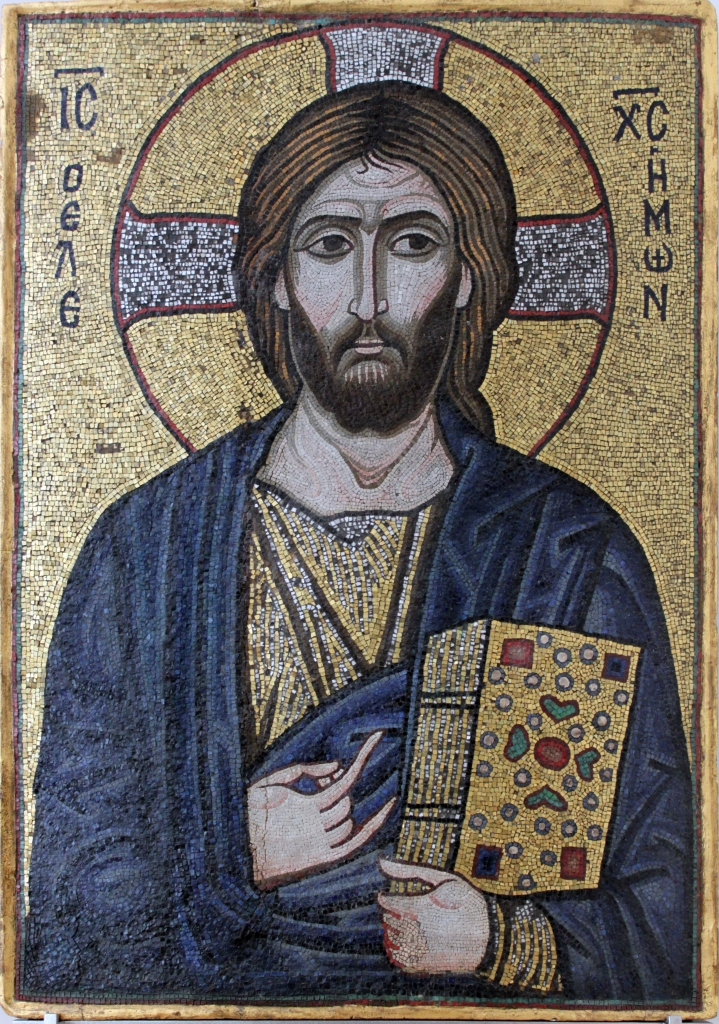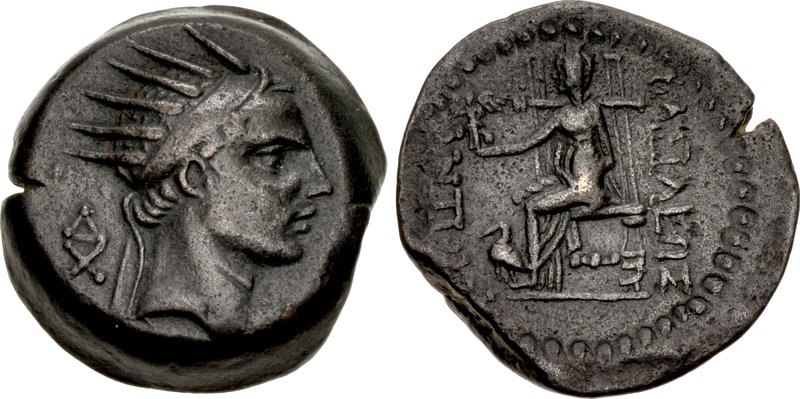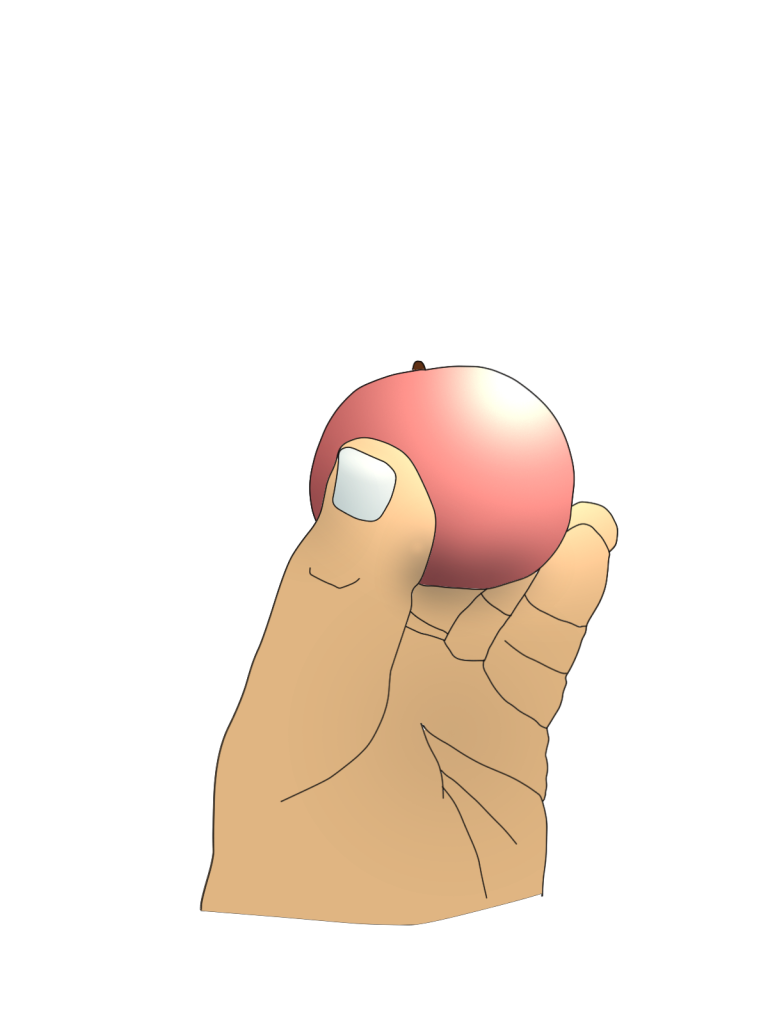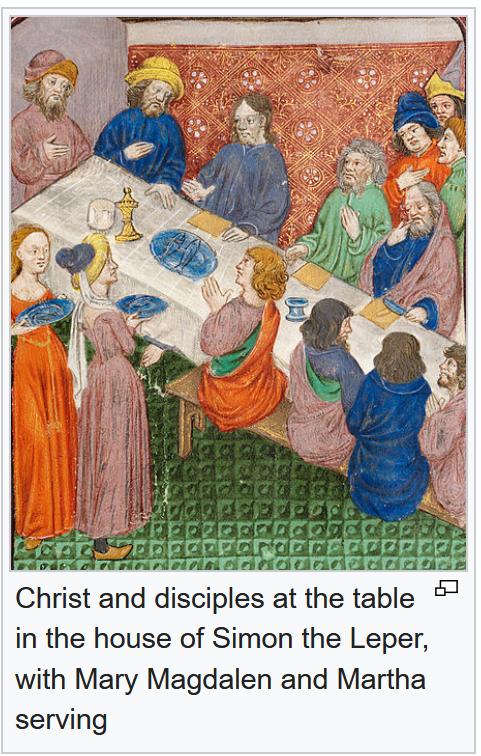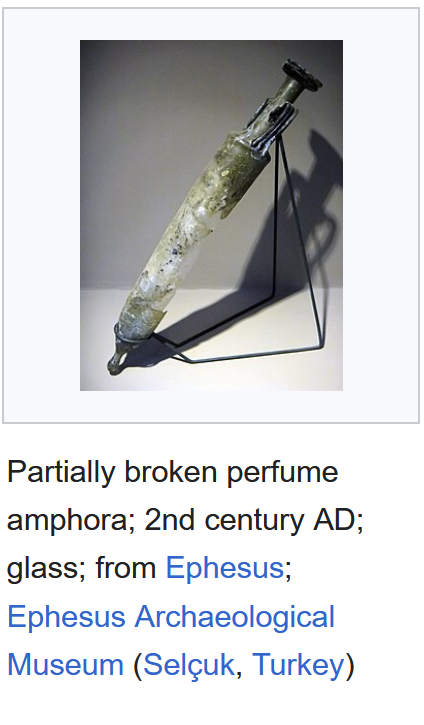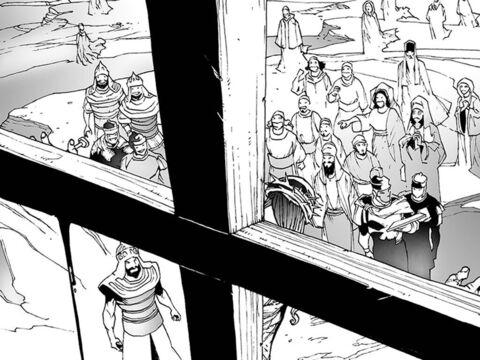Today I ask the question Why is Easter important? I want to start off with an object lesson. In my student days I was once given an inked wood cut poster of Marin Luther. Martin Luther alongside Erasmus were somehow involved in the initiation of the Reformation. I really like this old fashioned picture painter by Edward Matthew Ward. Yes, books used to be chained in the reading room. In this particular case the chains are thicker than normal and there is an hourglass on the other side of the table and the sand has run out. On the Museum and Gallery org site (from museumandgallery.org ) He says that these chains are a symbols of the inner turmoil going on inside the heart and soul of Luther.
He then quotes a passage from somewhere:
“Night and day I pondered until I saw the connection between the justice of God and the statement ’the just shall live by his faith.’ Then I grasped that the justice of God is that righteousness by which, through grace and sheer mercy, God justifies us through faith. There upon I felt myself to be reborn and to have gone through open doors into paradise. The whole of Scripture took on new meaning, and whereas before ’the justice of God’ had filled me with hate, now it became to me inexpressibly sweet in greater love. This passage of Paul became to me the gate of heaven.” (From Here I stand by Bainton as well as the above web site.)
Anyhow my view at this point follows Luther and John Calvin. The following blog is my understanding of the Fall. I will finish off the blog with some discussion on the question of justification of Faith with the help of Herman Bavinck in the Reformed Dogmatics
Easter is the great festival of Christianity and the culmination of God’s word to humanity (In Scripture) and by the Word of God (in our Lord Jesus being fully God and fully man, the Mystery of mysteries.) This is very personal as Bavinck reminded me that all we were as far as being alive to God; we were dead twigs. Something that is dead cannot make decisions. God the Unmoved Mover by the Holy Spirit breathed life into me so that by faith and by grace I could follow the way of Christ. A car without an ignition cannot move so a human being without the Holy Spirit cannot be spiritually alive in terms of salvation. The third Person of the Trinity is our ignition and life Creator.
But while we were dead in our trespasses and sins Christ, The Son of God, willingly died for my sin and your sin. It is now possible by faith, by grace for a human being to enter God’s Kingdom. This fact that Jesus died on Calvary and his resurrection are not any ordinary events. These events are the crucial events for the whole of the human race. This is not another Hegel or Pannenberg thesis, antithesis and synthesis of an event, as though one event modifies another event in the making history. No, my friends, there is no modification of history here as Christianity remembers the deeds of the past. We look back to the cross and the resurrection which is the crucial and the centre of the cross, Where the two beams meet, where our roads cross, This is indeed the Divine Will for the human race.
Why do I take this view as a Christian. Scripture tells us in Genesis that Adam and Eve sinned… You may say; Do you take this seriously?
Yes, I do.
Let me reason with you.
- If one takes the story of the fall literally, it is true.
- If one takes the story of the Fall generically (Adam and Eve as symbols) it is true
- If one takes the story of the Fall as a myth, it is true.
- If one takes the story of the Fall as legend, it is true.
- If you reject the story of the Fall in the name of science, it is still true.
We all sometimes in our human life do wrong. We all have our selfish ways. Even our good deeds somehow are tainted with, “What’s in it for me?”. Even if we wanted todo the right thing, God already knew that we could never save ourselves.
This is human nature, and this is the effect of the fall and even if you reject this theological, historical Fall; You still sin! The Bible says that if you sin your dead. Even reflecting on our own human nature shows that we are dead towards God as God and sin cannot live together.
Something special needed to happen in human history for us to be able to come closer to a true and living relationship with God. As far as sin in our lives are concerned there are many books to try to help us but they fail.
- Self-help books to make us healthier.
- How to be the next millionaire
- Brain train
The list could go on. I’m not saying these books are bad but what I am saying they are trying to fill that spiritual void. Then there are various belief systems;
- Buddhism, A practical religion that rains your mind to make you a more compassionate human being.
- Zen that this world you see is not the real one.
- Humanism to make better human beings through our own helps.
It gets a little bit more complicated after a while. I am not trashing these ideas as there is some grain of truth in all of them but in the end, they will never satisfy the human soul completely. This to me is a good enough reason to look at the Easter story in a little more depth. Each human being is different too and the way of reading Scripture will a lot of the time be influenced by our own bent on the Truth. But even here with the various types of humans:
- The scientific human
- The introspective human
- The willing human
- The doubting human
- The busy human
- The rich human
- The power-crazy human
- The sports human
- The party orientated human
Lets look at a couple of examples:
The Scientific objective human
This person believes that science has all the answers, and they spend their lives looking for the possibility to cheat death. They need hard evidence from the laboratory to come to a conclusion about the afterlife. Possibly if they looked at the papyri and early documents of the Bible then they could start to believe in the power of the Scriptures.
The Feelingful introspective Human
This person goes out looking to fill their emotional needs. They may dabble in drugs and alcohol to make themselves feel better but in the end, they lose all hope. Actually, our Lord taught that it is only when we realize we cannot do anything in our own wisdom to please God, that God starts to work in our lives. So, some drug addicts and experiential searchers can get into heaven too.
When we think about peoples’ circumstances and our own circumstances, we realize how lost we are. All human beings’ sometimes have sinned or have been hurt because of sin and wrongdoing. We have all missed the mark we have all done wrong. Never mind not being able to reach God’s standards, we cannot even reach our own standards. Our consciences (the voice of God) speak to us and condemns us.
This then is a real conundrum and even if speak in non-religious terms we can see how serious the human condition is. Which ever way we look at it by our own means such as:
- Self-help.
- Psychological therapy.
- Get rich.
- Work out (sports).
- Party all night get drunk and have sleep overs.
- Join a political party and fight for a cause.
I’m sure the list could go on that by using our intellect that we could possibly find happiness! Outside of religion every avenue open to us will fail. I’ve painted a grim picture of a humanist future. The governments can possibly make life a little bit more comfortable or uncomfortable with who is in power.
In a way every government is capricious, and they change their minds all the time. My answer to this dilemma is that there is indeed a God, there is indeed a Creator. For the Christian there is indeed the Trinity. In the past Pagan’s were on to something when they realized that there is a season for everything. Farmers used to mark the new year possibly on the full moon or equinoxes. They looked to the signs for the future harvest that they would have enough food to eat and survive.
There is truth to this, but it points to a greater truth that there is a higher intelligence that we do not understand. People can live because there is food to eat. People can live because they have clean drinking water et al. Theologically this is known as common grace, God’s love and His gift to the whole of the human race.
Even this cannot make us happy as we look at what the human race has done to our theatre of living on this planet earth. Woe betide that we will go to other planets and cause serious harm to them too. Should we even go to other planets if we cannot even take care of planet earth? Even with all of the resources on planet earth we cannot even take care of the poor and sick of where we live.
These are very serious questions.
The Trinitarian answer is the Easter Story. The Easter Story is God’s answer to the human condition. God’s answer to the human condition, your condition and my condition are found at the foot of the cross. The story of the Incarnation, the story of God becoming an ordinary life, living a life of submission to the will of God has been brought to this point. The point above all points, the reason above all reasons. Here, this particular moment that as far as the human condition is concerned, God in Christ was nailed to a wooden cross and hung there. Our Lord had a spear stuck into his side and blood and water gushed out.
What was our Lord’s answer while he was hanging there between the sky and the ground;
- The first answer was “Father forgive them for they know not what they do”. Luke 23: 34
- The second answer was the resurrection! 18 … and I was dead, and behold, I am alive forevermore, and I have the keys of death and of Hades. Revelation 1:18
People do not have power to save themselves But in Christ God comes into your life and the Holy Spirit is able to make you a new creation.
In simple terms God’s law was broken.
The Gospel is pretty straight forward:
…that if you confess with your mouth Jesus as Lord, and believe in your heart that God raised Him from the dead, you will be saved; 10 for with the heart a person believes, resulting in righteousness, and with the mouth he confesses, resulting in salvation. (Taken from biblegateway.com, Romans 10. 9-10)
In both aspects God is moving towards the sinner and the sinner is reciprocating God’s gift of salvation. It is never the other way around. No matter what a person does in their own strength, it is never possible to become a Christian. The human will of choice is dead to sin and it can never make decisions that can bring salvation in its own power. Having said that even though you are spiritually dead to the things of God, God is love and by the work of the Holy Spirit you can be brought into salvation through what Jesus did for you so that by faith you too can become a new creation with a new heart that seeks after God. Different Christians depending on their disposition come to follow Christ from different premises.
- Perhaps you have been praying and you feel Jesus is close to you. You say a prayer of repentance, that you are sorry for what you did, and you want to serve Jesus…
- Perhaps you had a dream and Jesus came to you in the dream and our Lord Convinced you that he is the Truth.
- Perhaps you have been looking at all the historical evidence of Jesus and his life and you have become convinced that Jesus is Lord.
- You have been brought up in a Christian Family and you have come to faith without realizing the point when you were a child of the world and then a child of the kingdom of heaven!
There is no one ‘right way’ a person can become a Christian as our Trinitarian God works in mysterious ways.
Reflection
Up to this point I have been writing for the casual reader. If you are a casual reader that is OK and you can stop reading and I hope you enjoyed the blog. Up to this point we learned that the human heart is very sinful and very deceitful and there is no way spiritually a person can get to heaven in their own strength. The road here however is wide open for everyone and by repentance and confession one can indeed become a follower of Christ. It may be that you have decided to become a Christian then my advice is read John’s Gospel, pray, and seek out mature Christians you can trust and ask them to help you.
The next section is more theological and if you like a challenge and want to think a little deeper about Justification by faith, its history and so on then feel free to continue reading.
Justification by faith and its relationship to good works in the thinking of Martin Luther or the forensic and effective aspects of justification by faith.
Martin Luther in the early days of the Reformation did not separate the forensic and effective aspects of Justification by faith. After Luther this kernel of truth got lost in the history of the times.
Bavinck starts to explain Luthers Position:
Faith, therefore, includes two things: believing that we are sinners and believing that out of grace God justifies us for Christ’s sake. We also have to accept the first [that we are sinners], not because we experience it ourselves, but because God says so.
(Taken from Reformed Dogmatics; page 191, Herman Bavinck, edited by John Bolt)
Bavinck makes it plain:
- We need to accept that we are sinners because (God has told us that)
- Because of Christ God can make us holy in his Son
Bavinck then quotes Martin Luther to show this:
“Even if we do not recognize any sin in ourselves, we must nevertheless believe that we are sinners. Hence the apostle says: “I am not aware of anything against myself, but I am not thereby justified” (1 Cor. 4:4). For just as the righteousness of God is alive in me by faith, so by the same faith sin is alive in me; i.e., by faith alone we must believe that we are sinners, because it is not obvious to us. If truth be told, most of the time we do not seem to be conscious of ourselves [as sinners]. Therefore, we must stand by God’s judgment and believe the words by which he tells us that we are unjust, because he cannot tell a falsehood. “
(Taken fromLut/Jer’x Works, 25:215 (“CIA 56:231; Ficker, I, 69); cf. Luther’s ”67365, 25:239 (W’A 56:252; Ficker, 11, 89)) (This image was taken from wikimedia)
To this justification Bavinck shows the active and passive aspects of Luther’s’ theology of justification:
“Contrition, accordingly, precedes the faith that embraces the righteousness of God in Christ. Now if people thus believe God at his word that there is no righteousness in themselves but only in Christ, they justify God, and that is passive justification. “To justify God in his words” is “for him to be made just and true in his speech, or, alternatively, for his speech to be made just and true. This happens, moreover, by believing and accepting [those works] and by holding them to be true and just.” But this passive justification by which we on our part justify God “coincides with God’s justification of us actively, because he regards as righteousness the faith that justifies his words.” ‘The two coincide: “When he is justified he justifies, and when he justifies he is justified.” Indeed: “God’s passive and active justification and faith or belief in him are the same. The fact that we justify his speech is his own gift, and on account of that very gift he regards us as just, that is, justifies us.”
Passive justification is:
- Contrition, repentance precedes faith.
- Believe God at his word that He is just (you confess that you are a sinner)
- Holding to God’s works being holy and true
Active justification coincides with:
- God regards the faith as in Christ our justification
Thus; “When he is justified, he justifies, and when he justifies, he is justified.” Thus the effects of this justification has its correlate good works in Christ: “The death of Christ is the death ofsin and his resurrection is the life of righteousness, because by his death he made satisfaction for sin and by his resurrection he brought about righteousness for us. His death, therefore, does not just signify, but also effects the forgiveness of sins. And his resurrection is not only “a sacrament of our righteousness but also effects it in us.” “All our good exists outside us in Christ, because that good is Christ,” but all of this also exists in us by faith and hope in him.19 In the same way Luther can say that our sin is covered by Christ’s dwelling in us, that God justifies believers because they confess their sins and seek their righteousness in him. (From ibid Bavinck)
Thus Bavinck saw Luther’s’ correlation of ‘forensic’ and ‘effects’ over half a century and more before Tuomo Mannermaa did, but Tuomo did well to see this. If this indeed is the situation on justification by faith, then what has been taught from the time of Melancthon through the German theologians is a theology that is not true to its Lutheran roots (Luther’s teaching). Bavinck reminds us in volume four that some of Luthers writings were lost until 1899! This has indeed affected ethics in the Finnish Lutheran Church with too much emphasis on mercy and forgiveness and not enough emphasis on contrition, repentance and so on. Obviously, this is indeed a serious situation as it allows ‘sin’ to grow in the Church and defame God’s name.
Reflection
God loves you as much as he loves me. God loves us so much that he had a plan to save us. God became a man and for a moment an instant at the cross, God the Father could not even look at his Son, as he took on the sins of the World. If we confess with a contrite heart that we are sinners (God’s gift) and if we believe in our heart Jesus as Lord, we will be saved.
We have come a long way in this blog and it is only as a child of faith that we have any hope of coming to God’s throne of grace.
We have also at the end touched on the fact that the Lutheran Church through some of its scholars got derailed from the rails of Luther’s teachings. Sin has crept into the Finnish Church thus repentance is needed and in Christ holiness to fill the Church again.
I have also learned from this blog that I need to return to the doctrine of justification again and ask God in Christ to teach me more to help the Church to grow again by faith in Christ.






